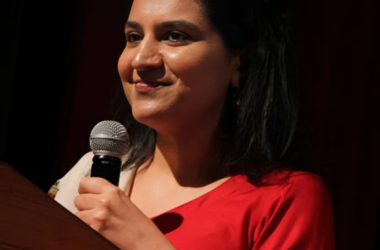By Air Cmde TK Chatterjee(retd)
The world recently marked 60 years of the Cuban missile crisis of 1962. A thirteen-day saga that brought the world to the brink of a nuclear holocaust.
Recent declassification of data from both Russia and the USA has brought out many facts and figures, sometimes down to the trivia, that were hereto not commonly known. Consequently, there have been a plethora of articles and opinions in the western media about what happened and what lessons could have been drawn and applied to the current Russia – Ukraine war. And all lead to the same conclusion: no lessons were learnt.
There are far too many frightening similarities between the Cuban missile crisis and the current war in Ukraine in its planning and execution.
The whole operation of placing nuclear tipped missiles in Cuba was not a well thought through plan on the Soviet part. They depended on secrecy and luck to pull off the entire operation of moving an entire range of missiles, their supporting paraphernalia and 40000 personnel from the USSR to Cuba. The plan was not just to locate the missiles but to set up an entire defence system including air defence elements, jet fighters and long-range bombers. As released documents reveal, the planners had no experience or knowledge of local conditions in Cuba. They thought terrain and natural vegetation would hide the huge amount of construction work that would be required to be undertaken to station the entire cargo and personnel. It did not. Thus, in Oct 1962, an U2 spy plane flying over Cuba spotted them and the crisis began. This whole plan, it is now claimed, was of Mr Khrushchev and the general staff of the soviet military, who had no earlier experience of moving entire missile divisions to anywhere, let alone across the Atlantic, did not dare to oppose it.
A similar thing has happened 60 years later. Khrushchev was emboldened by the failed CIA operation of attempting to overthrow Fidel Castro, by landing insurgents at the Bay of Pigs in 1961, and so he went ahead with the operation of placing missiles in Cuba. Another autocratic ruler of Russia, emboldened by his success of occupying Crimea in 2014, launched an invasion of Ukraine that was not thought through. Here again, the general staff did not speak out, and after over a year of bitter fighting, the blame game has begun.
Both Khrushchev and Putin were roughly motivated to undertake these extraordinary measures for roughly similar reasons. Khrushchev resented USA’s domination in European theatre and a fear that US may invade Cuba, which would make Khrushchev irrelevant in the communist world. Putin too resented the eastward expansion of an USA lead NATO. His own position in Moscow would certainly become vulnerable if he stood by and watched Ukraine joining NATO. With their hair-brained plans and botched execution both these Russian leaders also made the same mistakes. While Khrushchev poked the sleeping giant, Putin injected life into, in the words of President Macron of France, a “brain dead NATO”.
The opening gambits of these two events of history, separated by 60 years, have been very poorly executed by the Russians. They had the initiative, they chose the timing, but failed to make progress as desired. In the middle game in 1962, of all the options available to President Kennedy, he chose the naval blockade of Cuba, giving time to President Khrushchev to fall back. He also agreed, not to invade Cuba, and in a secret deal, to deactivate NATO missiles based in Turkey, which allowed Khrushchev to claim a badly needed face saving spin off in his own country. While Kennedy refused US general staff’s suggestion of an all-out offensive on Cuba, Khrushchev declined Fidel Castro’s suggestion of a pre-emptive nuclear strike on the US mainland. It is to the credit of both these leaders that they chose the options that pulled both forces back from a direct confrontation in Cuba or in Europe, which invariably would have turned into a nuclear armageddon.
In Ukraine, the middle game is on. NATO has armed the Ukrainians with weapons that will complement their will and determination to fight the Russians out of their entire country. The war is already spilling over into Russian territory, like Belgorod. UAVs are reaching Moscow. If the F-16 fighters also arrive on the scene, the war will quite certainly spill over into Russian territories well beyond. It will be a sad wastage of fighting potential if the supply of the F-16s is attached with the condition that they are not to cross Ukrainian territory. They will then be like what a newspaper article mentioned “birds in a cage”. And if they are really let loose and Russia interprets the war spilling into Russian territory as an “existential crisis”, then God help Europe. There are opinions being expressed in the western media that the summer offensive of Ukraine has chances of success, given the superior weapons that the Ukrainians now possess, and given the incompetence of the Russian general staff. With long range weapons, the Ukrainians can now reach Russian supply lines, logistic hubs, command centres well behind the front lines. It has been well proven beyond doubt that a great flaw in the feedback mechanism that existed in the Russian military in 1962 which led to the exposure of Russian forces in Cuba to US intelligence, still exists. It is another lesson not learnt.
The prudence shown by Kennedy and Khrushchev holds lessons for the world leaders today. Both chose options that prevented catastrophe. In Ukraine, both sides are calling for ultimate victories. The West is prodding Ukraine to go for the kill. If they succeed, it will push Moscow to a corner which inevitably will bring back the nuclear rhetoric. If the summer offensive fails, parts of Ukraine and Crimea stay with Russia. The war will then drag on indefinitely. It will therefore be wise for all parties to visit the history of the Cuban missile crisis and create a situation from which all can walk out with a part of something they wanted.
The author is an Indian Air Force Veteran.
Disclaimer: Views expressed are personal and do not reflect the official position or policy of Financial Express Online. Reproducing this content without permission is prohibited.
Consequently, there have been a plethora of articles and opinions in the western media about what happened and what lessons could have been drawn and applied to the current Russia – Ukraine war. And all lead to the same conclusion: no lessons were learnt.










